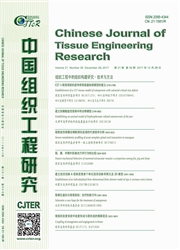

 中文摘要:
中文摘要:
目的:综述树突状细胞在慢性乙型肝炎和肝癌治疗中的应用前景。资料来源:应用计算机检索PUBMED2001—01/2005—12期间的相关文章,检索词为“dendritic cells,chronic type B hepatitis,hepatoma,therapy”.并限定文章语言种类为English。同时计算机检索万方数据库2001—01/2005—12期间的相关文章,检索词为“树突状细胞,慢性乙肝,肝癌,治疗”,并限定文章语言种类为中文。资料选择:对资料进行初审,并查看每篇文献后的引文。纳入标准:文章所述内容应与树突状细胞在慢性乙型肝炎和肝癌治疗中的应用相关。排除标准:重复研究或Meta分析类文章。资料提炼:共收集到56篇相关文献,30篇文献符合纳入标准,排除的26篇文献为内容陈旧或重复。符合纳入标准的30篇文献中,15篇涉及树突状细胞与慢性乙型肝炎的治疗.10篇涉及树突状细胞与肝癌的治疗,5篇涉及存在的问题与展望。资料综合:慢性乙型肝炎和肝癌的发生发展与病毒的持续感染和机体的免疫功能障碍有关,树突状细胞是机体中功能最强的抗原提呈细胞,在诱导T细胞抗病毒和抗肿瘤免疫中起核心作用。①树突状细胞与慢性乙型肝炎的治疗:许多证据表明由树突状细胞介导的细胞毒T淋巴细胞反应,通过杀伤感染的肝细胞和释放抗病毒的细胞因子来清除乙型肝炎病毒。②树突状细胞与肝癌的治疗:研究证明,经肿瘤抗原致敏的树突状细胞能明显增强特异性细胞毒T淋巴细胞对肝癌细胞的杀伤活性。结论:树突状细胞与慢性乙型肝炎和肝癌的发生发展密切相关。在乙型肝炎和肝癌治疗中,如能激发、增强机体对乙型肝炎病毒和肝癌细胞的主动免疫排斥反应,可有助于清除体内的病毒和肿瘤.达到抗病毒和抗肿瘤治疗的目的。
 英文摘要:
英文摘要:
OBJECTIVE: To review the perspective of dendritic cell application in the treatment of chronic type B hepatitis and hepatoma. " DATA SOURCES: PUBMED was undertaken to identify relevant articles published from January 2001 to December 2005 with the key words of "dendritic cells,chronic type B hepatitis,hepatoma,therapy- in English. At the same time, Wanfang database was undertaken to identify the relevant articles published between Januaw 2001 and December 2005 with the key words of "dendritic cells, chronic type B hepatitis, hepatoma ,therapy" in Chinese. STUDY SELECTION: The data were selected primarily, and then quotations of each article were checked. Inclusive criterion: the articles related to the application of dendritic cells in the treatment of chronic type B hepatitis and hepatoma were selected, Exclusive criteria: the articles with repetitive research or Meta analysis were excluded. DATA EXTRACTION: Totally 56 relevant articles were selected and 30 of them met the inclusive criterion. The 26 excluded articles were of old or repetitive content. Of the 30 inclusive articles, 15 were on application of dendritic cell for chronic type B hepatitis, 10 were about application of dendritic cell for hepatoma and 5 were about the problems and prospect. DATA SYNTHESIS: The occurrence and development of chronic type B hepatitis and hepatoma were related with persistent infection of virus and impairment of immune function. Dendritic cell that was the antigen presenting cell with the strongest function played a key effect on inducing anti-virus and anti-tumor immunity of T cells. ①dendriUc cell and the treatment of chronic type B hepatitis: Many evidences showed that cytotoxic T lymphocyte (CTL) reaction was mediated by dendritic cell. Hepatitis B virus was removed by killing infected liver cells and releasing antiviral cytokine. dendritic cell and the treatment of hepatoma: Studies verified that tumor antigen sensitized dendritic cell could significantly enhance the killing of special
 同期刊论文项目
同期刊论文项目
 同项目期刊论文
同项目期刊论文
 期刊信息
期刊信息
